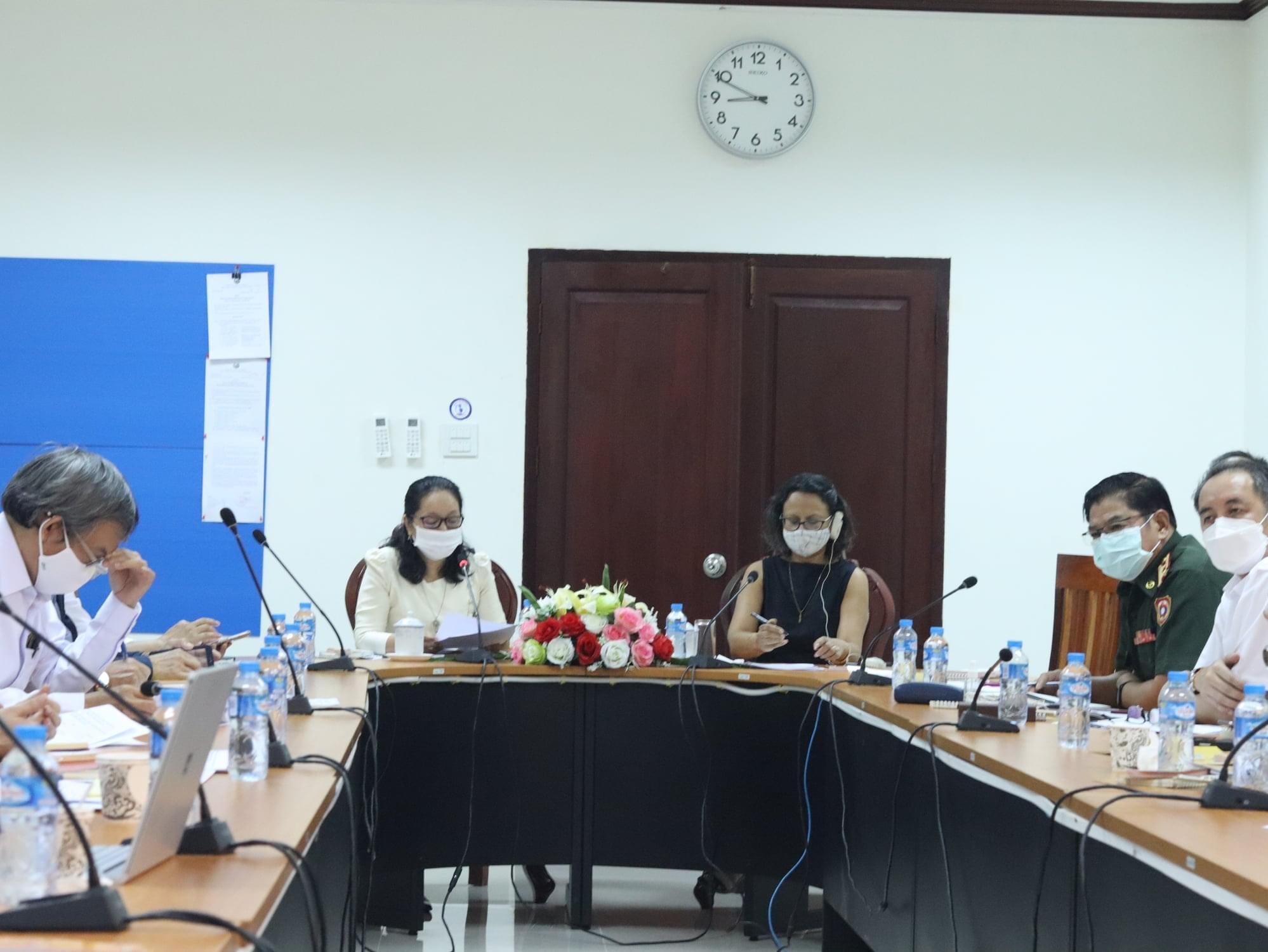Vientiane capital, 6 August 2021 - The first multi-sectoral consultation meeting on Gender-based Violence (GBV) was attended by NCAWMC, Lao Women Union (LWU), Police, the People’s Supreme Court, Hospitals and the social sectors with the aim to establish common understanding on coordination mechanism, referral system, and monitoring framework for GBV response.
Dr Chanthanom Manithip, Director General, Cabinet Office of Ministry of Health said “I’m honoured to be a part of today’s meeting to discuss the mechanism for coordinating, referring, and collecting the data to assist victims. Ministry of Health has completed a Training of Trainers on the WHO Clinical Handbook for Health Care for Women Subjected to Intimate Partner Violence or Sexual Violence. Thanks to UNFPA who supported the training and adapted the Handbook so that we have a unified guidance on providing healthcare to survivors.”
The health sector response to GBV is critical as the front-line support to women injured from violence, who seek healthcare and support. A quality health service response ensures survivors have access to the highest attainable health standard. Health providers (nurses, midwives, doctors and others) are often the first professional contact for survivors, and the trained health service providers can facilitate survivors' access to a full range of support systems.
This multi-sectoral mechanism on GBV response is part of the Essential Services Package (ESP) for prevention and response to violence against women and girls. The ESP is a guidance tool identifying the essential services that should be provided by the health, social services, police, and justice sectors. These services should be provided to all women and girls who have experienced gender-based violence. Implementation of the ESP involves sector efforts as well as cross sector coordinated responses so that a survivor centered response is set up.
Mariam Khan, Country Representative of UNFPA, said “ I congratulate the government for its commitment to ending violence against women. The national framework for bodily autonomy for SDG indicator 5.6.2 in Lao PDR is amongst the most progressive thanks to the improvement of legislation, and the capacity building of duty bearers. COVID-19 has exacerbated the crisis of violence against women and girls, and there is an urgency to respond with services that translate policies into action”
UNFPA works with the government to establish a national coordination mechanism and referral pathway for GBV, and strengthen the health sector's capacity. These interventions align with international instruments ratified by Lao PDR, such as CEDAW and ICPD25, and combine a top-down and bottom-up approach—capacity building for duty bearers to detect and prevent GBV, while also sensitizing rights holders on how to assert their rights.
The meeting ended with participants agreeing to strengthen internal and cross sector mechanisms through detailed technical follow up.
For more information please contact:
Ms. Oulayvanh Sayarath
National Program Analyst, UNFPA Laos
Ms. Vanly Lorkuangming
Communications and Partnerships Analyst, UNFPA Laos


